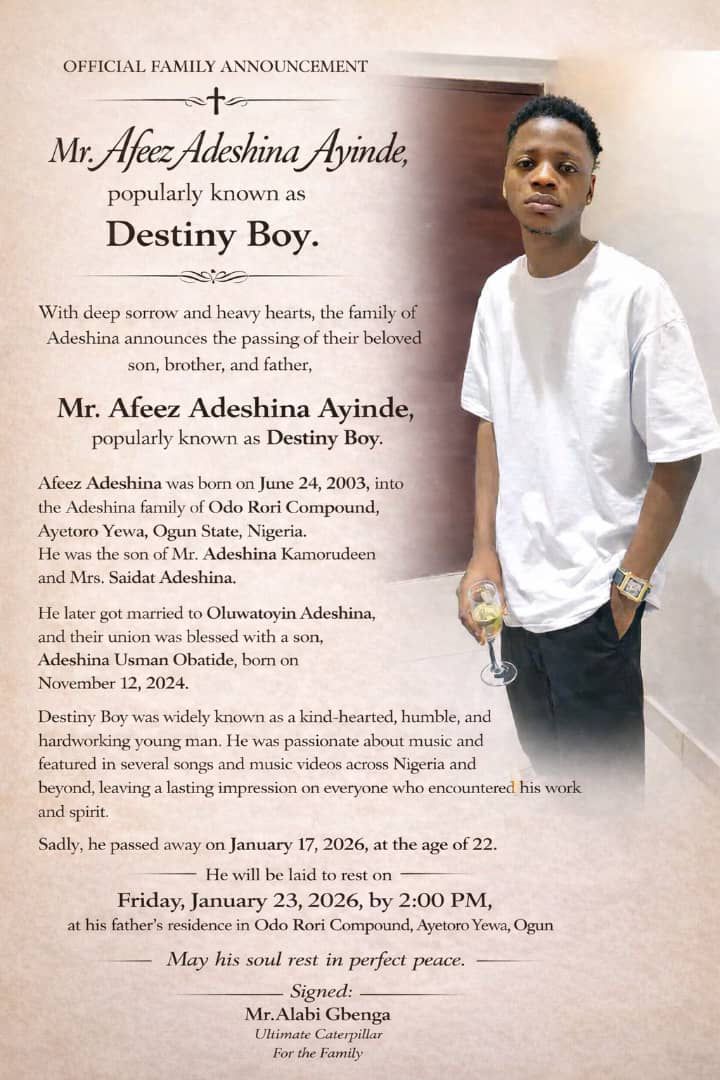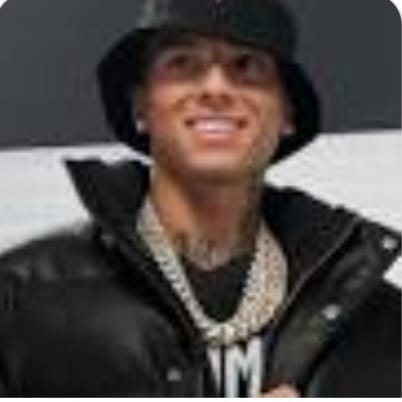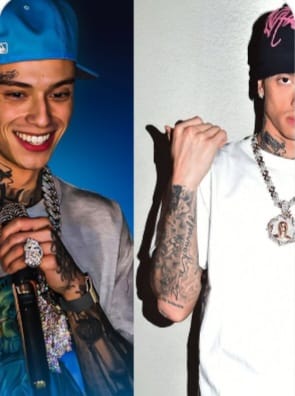Entertainment
“I spent nine years in University” + How Ali Baba, RMD helped my career

Not many people know Ayo Makun, but at the mention of AY, everybody knows who you are talking about. This is because AY, as a stand-up comedian, has built his name into a brand that has broken barriers. In this interview with ADUNOLA FASUYI, the comedian speaks about his beginning and his rise to stardom.
Excerpts: Can you tell us about your childhood? Family background?
Growing up wasn’t bad. The good thing about my growing up was that I was born into a Christian family. My parents gave us the proper guidance we needed in life. I grew up as the first male child from a family of seven. Being the first, there was no such thing as a silverspoon. We didn’t even see a wooden spoon, but it was very good. The fear of God that guided us then and which is still guiding us now, is one thing that kept us strong and fit.
Can you tell us the schools attended with qualifications?
When I say I spent nine years in Delta State University, a lot of people begin to wonder why. I wasn’t a failure and it wasn’t totally due to the strike actions that were rampant in those days. I was just somebody who was unable to get his priority right at the very early stage. Because I needed to be in school, I decided to study Music with the intention of taking elective courses that were in line with Mass Communication. And good enough for me, I passed all the elective courses very well, but the department rejected my application to go. So, I had to study Music.
It was at the point of my final year in Music that I made a decision that I wasn’t going to graduate in music. I took JAMB form again, I now put in for Theatre Arts because you know that when you find yourself in a system, you will have a better understanding of that system. So, I later discovered that Theatre Arts could equally give me everything that I could get in communication because they belong to the same family and that was how I went for Theatre Arts. I was in my final year when they told me that they could not find my course registration form for 200 Level.
It meant that my result was illegal and I needed to repeat. I decided to leave school and I came back to Lagos trying to find my way out of Nigeria. I met somebody who duped me, so I had to go back to Abraka to repeat the 200 Level. But by the time I got there, the registration had closed. So, I had to come back the following year to start 200 Level and I was sponsoring myself in school. It was not easy.
How exactly did you get into comedy, was it by accident or design?
It was between 2005 and 2006. My unveiling came at the RMD-organised Made In Warri of year 2005.
Prior to that time, I had done a show with Basketmouth during his show, Laughs and Jams and he was telling Ali Baba how I performed well. But my breakthrough was with Nite of a Thousand Laffs. Strange to say one of the other comedians said he would use my jokes because I was not a comedian. It was then Ali Baba insisted that I will perform for five minutes.
During the show, Ali Baba beckoned on me and said “O ma se five minutes” (You will perform for five minutes). I immediately got on stage and Opa Williams wondered how I got on stage to perform at his show which was a big show. I went ahead to do my thing and in less than 30 seconds, I had taken the show to another level. By the time I was leaving the stage, I got a standing ovation. By the time the second show would commence, Opa Williams asked me if I could do what I did during the first show. That was all I needed for somebody to believe in me.
The second show was greater than the first show and ever since then, comedy has been putting food on the table for me. It blew out of proportion and I got the best upcoming comedian award for that year and that same year, I was nominated for the best upcoming comedian and I was also nominated for the comedian of the year. That was what gave me the confidence for my one-man show, AY live. The maiden edition was held at the Muson Centre and it was a sell-out. I want to say it is hardwork and luck put together because we are doing a lot as well; I am not the kind of comedian who just believe that let me just go and crack jokes and make a living.
What was your parents’ reaction when you decided to take up comedy as a career, maybe they wanted you to be a doctor, lawyer, banker etc?
I lost my parents while in the university, but they brought me up in a background where my father was a major figure. His presence alone would correct anything that seemed wrong. They were always teaching us that the fear of the Lord is the beginning of wisdom. I can rephrase that and say, ‘the fear of my father being around was the beginning of me trying to get anything that I do right’ because I always would do what he wanted me to do. I imagine they would have been proud of me because it is the inherent creativity that I received from them that has brought me to limelight
Who are your mentors in the industry?
I have already mentioned the role Ali Baba played in my life as a friend and mentor. Another person who has impacted me greatly is RMD. RMD was also a very strong influence in terms of corporate branding and packaging. RMD is a very meticulous individual. Anytime I want to go to an event, I make sure I look my best because all of these add value to your brand. I was at an event one day and somebody came to me and said, “please, did you see the comedian; they said he went through this way” and I was looking at him and I said ‘sir, I’m the comedian, I’m the MC.’ And he said, ‘I almost mistook you for my MD, because of the way you are dressed.’ RMD taught me all these. When they cannot differentiate you from themselves, then you earn respect, but when you go there and your shoe is looking to heaven for help, then they can order you around. Which event shot you into limelight? Was it a Nite of a Thousand Laughs or Ali Baba’s shows?
There is no need to think much on that subject. I have already answered this in past interviews and even on stage. The answer is I needed to give it to Ali Baba. Apart from the fact that I worked with him, I lived with him, so I was able to really study him and tap from his experience. He is the kind that pays attention to details and he is the kind of person who would like to get it right all the time. If, for example, he has an event that has to do with lawyers, he would crack jokes that they can relate with. If you see Ali Baba on stage, you won’t just see a comedian, you will see someone that will interact and get across to the people he is entertaining and they will begin to wonder if he is not one of their learned colleagues. He has one of the largest libraries I know and he reads widely, depending on whose function he is attending. This is to make him capable of relating well with them, which is highly professional and spontaneous. And that’s why we call him the king of comedy. That’s why I say my living with him was a blessing and people are still awed at the fact that I came into the business not long ago and yet I am already relevant; it’s because of the influence of Ali Baba in my life. To specifically answer your question, I started by performing during the Ali Baba Fans Club Show at Victoria Garden City (VGC). Before Ali Baba performed, I would have performed. Sometimes, the jokes were funny and sometimes they were not funny. But Ali Baba would always advice on those jokes. The next week, I would have taken to corrections and corrected those things he advised and the audiences were thrilled with my jokes. That was how I honed my skills as a comedian. Interestingly, when I was not yet a comedian, I had several scripts on jokes that I wanted to give those that will perform. It was just time for me to make use of those scripts.
What does it takes to be a good and successful comedian like you? Well, the determination to succeed propels me. What people see as something that is supposed to weigh me down became the needed tonic for what will just propel me to another level. For comedy, it was other comedians who knew me as an events person and they would poke jokes amongst themselves saying, ‘AY dey crack joke too? Wetin he wan talk?’ Many of them said that to me, but my response was they should wait and see what I would become. And it has happened. In the area of relationship, there was this lady who told me pointblank that I was approaching life at snail speed. Also, I am a great researcher. Those that know me know I always like my laptop close by because I always want to be in the know. Thus, I stand in front of my audience and I can do my jokes and give you facts. I relate with issues and people would be wondering; is this guy a comedian or a teacher? But then, I am achieving both. As I dish out relevant information to my guests, I lace my jokes with information and so my guests go away with laughter and nuggets of information. This is one of the things I learnt from Ali Baba.
No doubt, comedy is time-consuming, does your home front suffers fatherly care and attention due to the job?
No to all those questions. My marriage has been so wonderful and fruitful. I heard a lot of negative advice when I wanted to get married. Friends told me my fan base would reduce and if I had listened to them then, I would not have this blessed life I am living now. The truth is this, “he that finds a good wife, finds a good thing”. It was when I got married that I began to have more female fans. I realised that marriage brings a sense of responsibility and respect. I enjoy a lot of respect as a married man. Marriage is blissful. Myself and my wife, Mabel, are blessed with a wonderful baby girl we named Adeola. On the business side of things, being a husband and a father does not interfere in any way. As a matter of fact, what I do with my brand can be regarded as family business. Those who are used to me always see my wife running the business angle for me. We run the business together and business has been great because we complement each other. What other things do you do besides comedy? If you had not been a comedian what other career would you have chosen? It is encased in one word, entrepreneurship. That is who I am. Since 2007, I have been building an empire on comedy and entertainment. I run a corporate world entertainment; the company that is packaging AY live and I do a TV show known as the AY Show. Right now, I am building a comedy channel on HITV that is going to be the first comedy channel in the country. We have started it already and we are on Hi-Nolly. We also have AY magazine as well as a platform for upcoming comedians called Open Mic Comedy challenge. I also consult for people who want to do live events as well. So, I can say I do a lot. I produce, present, write and act. How rewarding has the career been for you? The career has been rewarding indeed. From the unknown person, Ayo Makun, who sought to make ends meet, my career has turned me to AY, a brand, whose fan base is not limited to the corporate sector but cuts across the entire sectors of the Nigerian economy. I have been opportuned to meet governors, the current president and the crème de lacrème of the society. It is humbling, when such highly-placed individuals declare their admiration for my manner of comedy.
What were the challenges you had to face as a young comedian?
There were times I would be ready and all dressed up and even go backstage believing that the time to perform will be there and I wasn’t even listened to. It was that bad. There were times when the senior colleagues regarded me as a nonentity, who could not grab the microphone. I went through these challenges with gusto because I had a clear view of my goal. So, to me, they were just stepping stones that have led to the success you are seeing now. How long have you been married now? Was it after you started comedy? I started comedy in 2005 and I got married in 2007. So, it is obvious which came first. But we had been dating a long while. We met at Delta State University where I finished from; she was coming in when I was graduating. She became a major reason to go back to the school and today she is my wife.
Entertainment
Nollywood Actress and Philanthropist Amb. Princess Chelsea R.C. Nwodo Appointed as Chief of Staff to AGN National President*

*Nollywood Actress and Philanthropist Amb. Princess Chelsea R.C. Nwodo Appointed as Chief of Staff to AGN National President*
Abuja, Nigeria – The Actors Guild of Nigeria (AGN) announces the appointment of Amb. Princess Chelsea R.C. Nwodo as the new Chief of Staff to National President, ALHAJI SANUSI ABUBAKAR YAKUBU. This strategic move underscores the Guild’s commitment to excellence and its dedication to fostering a more efficient and effective leadership structure.
Amb. Nwodo brings a wealth of experience and expertise to her new role, having served as a National Deputy Secretary (Emeritus) and demonstrating exceptional leadership skills and a deep understanding of the Guild’s vision and mission. A respected member of the Nigerian entertainment industry, she is also known for her dedication to promoting actor welfare and advancing the Guild’s interests.
*A Proven Track Record*
Amb. Nwodo’s appointment is a testament to her outstanding contributions to AGN and her commitment to serving the Nigerian film industry. Her philanthropic efforts and advocacy for social causes have made a positive impact on Nigerian communities, She’s also the CEO of CHELSEA NWODO’S FOUNDATION a foundation known for its unique cultural expression and alliance with many state government including Delta state government and so on.
*About the Actors Guild of Nigeria (AGN)*
The AGN is the governing body for professional actors in Nigeria’s Nollywood film industry, established in 1998 with over one million members across the six geopolitical zones of the federation. The Guild promotes actor’s welfare, protects their rights, and advances the Nigerian film industry.
Entertainment
From Drill to Deen: Central Cee’s Conversion and the Power of Faith in Modern Hip-Hop

From Drill to Deen: Central Cee’s Conversion and the Power of Faith in Modern Hip-Hop
By George Omagbemi Sylvester
“The British rap star’s public declaration of Islam sparks global reactions and renews debate about spirituality, identity, and influence in contemporary music.”
British rap superstar Central Cee has publicly announced that he has converted to Islam, a revelation that has rapidly spread across global media and social platforms, drawing reactions from fans, cultural commentators and religious observers alike. The development marks a deeply personal shift for one of the most influential voices in modern UK drill, and it highlights the growing intersection between faith, identity and popular culture.
Central Cee, whose real name is Oakley Neil Caesar-Su, disclosed the decision during a recent livestream, where he stated that he had taken the Shahada, the Islamic declaration of faith that formally marks a person’s conversion to Islam.
According to multiple reports published on February 6, 2026, the rapper confirmed the conversion publicly, saying he had changed his name and embraced Islam, with friends present during the broadcast congratulating him.
The announcement quickly became a trending global topic, with thousands of fans flooding social media with messages of support and congratulation.
What happened, when, where and how
The confirmed facts are straightforward.
What happened: Central Cee announced his conversion to Islam.
Who: The British rapper, born Oakley Neil Caesar-Su.
When: The announcement surfaced publicly on or around February 6, 2026.
Where: The declaration was made during a livestream, widely circulated online.
How: He confirmed he had taken the Shahada and embraced Islam, with friends present during the session.
Before this announcement, Central Cee had never publicly declared adherence to any specific religion, though fans had long speculated about his spiritual leanings.
Background: the rise of a global rap force
Born on June 4, 1998, in London, Central Cee rose from the streets of Shepherd’s Bush to become one of the most commercially successful British rappers of his generation.
He achieved mainstream recognition with his 2020 single Day in the Life and later dominated charts with hits such as Doja and Sprinter, accumulating billions of streams worldwide.
By the mid-2020s, he had become a defining figure in UK drill, blending street narratives with a polished, globally accessible sound.
Reactions and significance
The news of his conversion triggered widespread reaction across continents. Many fans congratulated him, using phrases such as “Welcome to Islam, brother,” reflecting the celebratory tone among supporters.
Others expressed curiosity about whether the decision would influence his music, public image, or future lyrical direction.
Cultural analysts note that religion has long played a quiet but significant role in hip-hop. From Malcolm X’s influence on American rap consciousness to the presence of Muslim artists in both US and UK scenes, faith has often shaped artistic identity.
British sociologist Dr. Reza Pankhurst, writing on religion and youth culture, has argued that for many urban artists, faith offers “a language of discipline, moral structure and belonging in environments often defined by instability.”
Similarly, American scholar Dr. Sherman Jackson has noted that Islam’s appeal among musicians and athletes lies partly in its “emphasis on personal responsibility, spiritual dignity, and community.”
While these are broader observations about religious influence in culture, they help explain why high-profile conversions often resonate far beyond the personal sphere.
Why the announcement matters
Central Cee is not merely another celebrity; he is one of the most commercially powerful voices in British rap, with global reach across Europe, Africa, Asia and North America. His decisions, therefore, carry symbolic weight.
When artists of such stature publicly embrace a faith, it often triggers three parallel conversations:
First, identity: Fans begin to examine how the artist’s beliefs align with their lyrics and public persona.
Second, influence: Younger audiences may view the decision as aspirational or spiritually significant.
Third, authenticity: Critics and supporters alike debate whether faith will reshape the artist’s artistic content.
British cultural commentator Kehinde Andrews has previously observed that hip-hop is “not just music but a social language through which young people negotiate power, race, faith and identity.”
In that sense, Central Cee’s announcement becomes part of a larger cultural dialogue not merely a personal declaration.
The question of a new name
Some reports indicate that the rapper mentioned changing his name after taking the Shahada, though details remain inconsistent across sources.
While certain online reports suggested possible new names, there is no universally confirmed official new name from the artist at the time of reporting.
This remains an evolving aspect of the story, and responsible reporting requires caution until a formal statement is released through verified channels.
The broader context: faith and hip-hop
Central Cee joins a growing list of artists who have publicly embraced Islam. Over the decades, figures such as Yasiin Bey (Mos Def), Lupe Fiasco, Ice Cube, and Q-Tip have either converted to Islam or drawn heavily from Islamic teachings in their music.
In the UK, Muslim identity has long been intertwined with the grime and drill scenes, reflecting the multicultural realities of cities like London, Birmingham and Manchester.
Cultural historian Tricia Rose, one of the foremost scholars of hip-hop, once wrote that the genre “has always been a site of spiritual searching, moral struggle and social commentary.”
In that context, a public conversion is not an anomaly but part of a longstanding tradition of artists seeking meaning beyond fame and commercial success.
What remains unclear
Despite the viral spread of the story, certain details are still evolving:
The exact location of the livestream has not been formally confirmed.
The identity of the individuals present during the Shahada has not been publicly verified.
Any official legal name change has not been documented in confirmed public records.
Responsible journalism requires distinguishing between verified facts and social-media speculation.
Final assessment
Central Cee’s conversion to Islam is a deeply personal decision that has nonetheless sparked global conversation. Announced during a livestream in early February 2026, the declaration places one of Britain’s most influential rappers at the centre of a broader discussion about faith, culture and celebrity influence.
In an era where artists are often defined solely by streaming numbers and chart positions, his announcement underscores a different narrative: the search for meaning, identity, and spiritual grounding in the midst of global fame.
As the late scholar James Cone once wrote, “Spiritual transformation is the most radical form of social change, because it begins inside the human soul.”
Whether Central Cee’s journey will reshape his music or remain a private source of guidance is a question only time can answer. What is certain, however, is that his decision has already stirred conversations that extend far beyond the world of rap.
Entertainment
Remembering Afeez Adeshina “Destiny Boy” : A Life of Promise, Music, And Quiet Impact ~ 1ST ELEVEN9JA TV

Remembering Afeez Adeshina “Destiny Boy” : A Life of Promise, Music, And Quiet Impact ~ 1ST ELEVEN9JA TV
By Alhaji Arems (Baba Fuji)
The Nigerian music scene is mourning the loss of Afeez Adeshina Ayinde, popularly known as Destiny Boy, whose passing has left a deep sense of grief among family, friends, and fans. Though his life was brief, his story is one marked by determination, creativity, and a steady rise driven by passion rather than noise. Destiny Boy passed away on January 17, 2026, at the age of 22, cutting short a journey that many believed was only just beginning.
Early Life And Background :
Afeez Adeshina was born on june 24, 2003, into the Adeshina family of Odo Rori Compound, Ayetoro Yewa, Ogun State, Nigeria. He was the son of Mr. Adeshina Kamorudeen and Mrs. Saidat Adeshina, raised within a close-knit family environment that shaped his values and character.
From an early age, Afeez was known for his calm demeanor and respectful nature. Those who grew up around him often describe him as gentle, focused, and quietly ambitious. Music became an outlet through which he expressed himself, long before public recognition followed. What began as interest and experimentation gradually turned into purpose.
Music Career And Creative Journey :
Known professionally as Destiny Boy, Afeez carved out his place in music through persistence rather than spectacle. He was deeply passionate about his craft and committed to growth, often collaborating and featuring in songs and music videos across Nigeria and beyond.
While he may not have been the loudest voice in the room, Destiny Boy earned respect for his work ethic and humility. He approached music with seriousness, seeing it not just as entertainment but as a path to building something meaningful. Colleagues and collaborators consistently describe him as hardworking, disciplined, and eager to learn — traits that set him apart in an industry often defined by fast success and fleeting attention.
His presence in multiple projects across different platforms reflected a steady upward movement. For many young creatives, Destiny Boy represented the quiet grind: showing up, improving, and letting the work speak.
Family Life And Personal Milestones :
Beyond music, Afeez embraced responsibility early in life. He got married to Oluwatoyin Adeshina, and their union was blessed with a son, Adeshina Usman Obatide, born on November 12, 2024. Becoming a husband and father added new depth to his life, grounding him further and reshaping his priorities.
Those close to him speak of his devotion to family and his desire to build a stable future. Balancing personal life with creative ambition was not always easy, but Afeez carried these responsibilities with maturity well beyond his years.
His Passing :
The news of Destiny Boy’s death on January 17, 2026, came as a shock to many. At just 22 years old, his passing raised a collective sense of loss — not only for what he had achieved, but for the potential that remained unrealized.
While details surrounding his death have been kept private, the impact has been deeply felt across his immediate community and within creative circles. Tributes have highlighted not only his music but his character: kind-hearted, respectful, and sincere.
Burial Arrangements :
The Adeshina family has announced that Afeez Adeshina Ayinde (Destiny Boy) will be laid to rest on:
Friday, January 23, 2026 :
Time : 2:00 PM
Venue : His father’s residence, Odo Rori Compound, Ayetoro Yewa, Ogun State
Family members, friends, colleagues, and well-wishers are expected to gather to pay their final respects and celebrate a life that, though short, left a meaningful imprint.
A Legacy Beyond Numbers :
Destiny Boy’s story is not one measured by chart positions or awards, but by consistency, humility, and quiet influence. He represented a generation of young Nigerian creatives navigating ambition, responsibility, and identity in real time.
In remembering Afeez Adeshina, many will recall a young man who showed up for his craft, valued his family, and treated people with respect. His journey serves as a reminder that impact is not always loud — sometimes, it is built patiently, one step at a time.
As he is laid to rest, his music, memories, and the lives he touched remain.
May his soul rest in perfect peace.
-

 celebrity radar - gossips7 months ago
celebrity radar - gossips7 months agoWhy Babangida’s Hilltop Home Became Nigeria’s Political “Mecca”
-

 society5 months ago
society5 months agoReligion: Africa’s Oldest Weapon of Enslavement and the Forgotten Truth
-

 society7 months ago
society7 months agoPower is a Loan, Not a Possession: The Sacred Duty of Planting People
-

 news7 months ago
news7 months agoTHE APPOINTMENT OF WASIU AYINDE BY THE FEDERAL GOVERNMENT AS AN AMBASSADOR SOUNDS EMBARRASSING












You must be logged in to post a comment Login